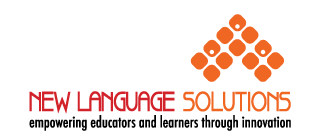PROJECTS
Avenue.ca provides individual interactive LINC course activities associated with listening, speaking, reading and writing, while offering opportunities for collaboration and discussion. Its structure, combined with the variety in course activities and tools, encourages active learning where learners control the pace and type of learning. The LINC courseware adapts to special needs clients and different learning preferences. Blended (hybrid) and online approaches to program delivery enable service providers to reach clients who otherwise cannot participate in programming.

- Always respect language educators’ needs and capabilities;
- Implement better practices in TELL and the TESOL Technology Standards;
- Innovate constantly in response to a rapidly evolving technical landscape;
- Develop open-source learning management software solutions for free distribution to non-profit educational users;
- Evaluate to constantly improve our skills, and our knowledge of the needs of both immigrant learners and their language educators.
Ultimately, New Language Solutions is a service provider to other service providers in the IRCC-funded language training sector, consisting of around 220 colleges, school boards and community organizations, as well as their instructors and managers. Service providers that embrace blended or online delivery models using this LINC courseware are better able to meet the needs of their clients.

Onyxon.ca is a partnership with the Toronto Catholic District School Board (TCDSB) to create e-learning courseware for the ESL and FLS programs of the Ontario Ministry of Labour, Training and Skills Development. This technology-enhanced language learning (TELL) project encompasses social communication that expands upon language learning to make possible communities of practice among newcomers and their construction of personalized learning networks.




